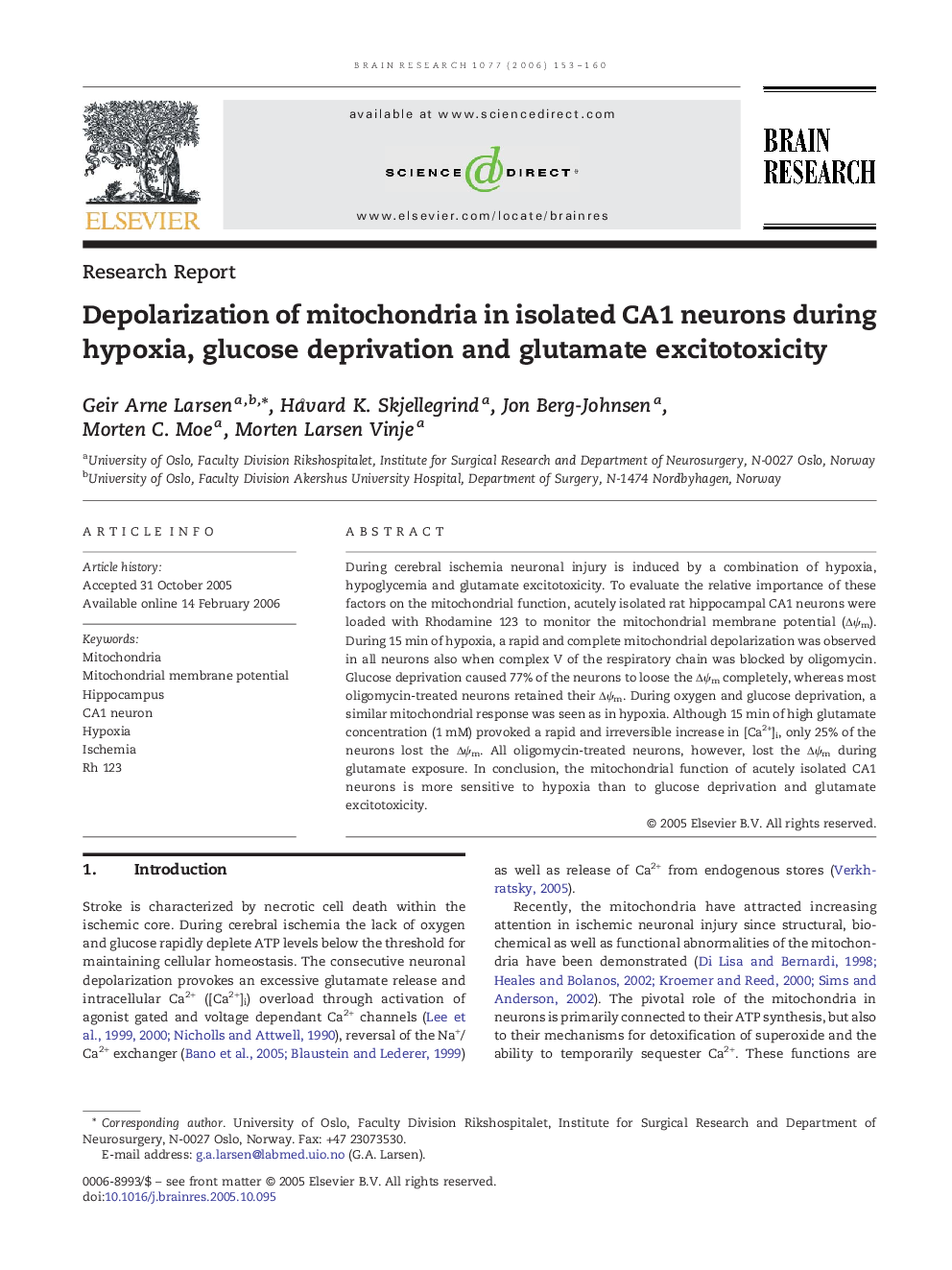| Article ID | Journal | Published Year | Pages | File Type |
|---|---|---|---|---|
| 4333205 | Brain Research | 2006 | 8 Pages |
Abstract
During cerebral ischemia neuronal injury is induced by a combination of hypoxia, hypoglycemia and glutamate excitotoxicity. To evaluate the relative importance of these factors on the mitochondrial function, acutely isolated rat hippocampal CA1 neurons were loaded with Rhodamine 123 to monitor the mitochondrial membrane potential (ÎÏm). During 15 min of hypoxia, a rapid and complete mitochondrial depolarization was observed in all neurons also when complex V of the respiratory chain was blocked by oligomycin. Glucose deprivation caused 77% of the neurons to loose the ÎÏm completely, whereas most oligomycin-treated neurons retained their ÎÏm. During oxygen and glucose deprivation, a similar mitochondrial response was seen as in hypoxia. Although 15 min of high glutamate concentration (1 mM) provoked a rapid and irreversible increase in [Ca2+]i, only 25% of the neurons lost the ÎÏm. All oligomycin-treated neurons, however, lost the ÎÏm during glutamate exposure. In conclusion, the mitochondrial function of acutely isolated CA1 neurons is more sensitive to hypoxia than to glucose deprivation and glutamate excitotoxicity.
Related Topics
Life Sciences
Neuroscience
Neuroscience (General)
Authors
Geir Arne Larsen, HÃ¥vard K. Skjellegrind, Jon Berg-Johnsen, Morten C. Moe, Morten Larsen Vinje,
